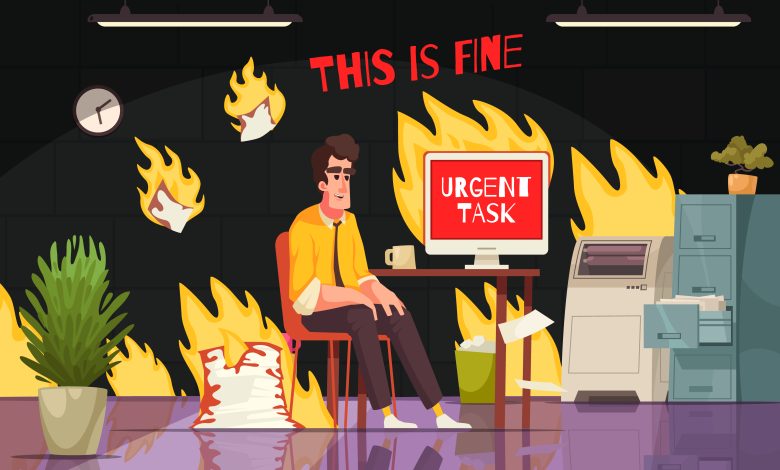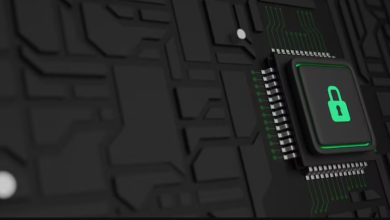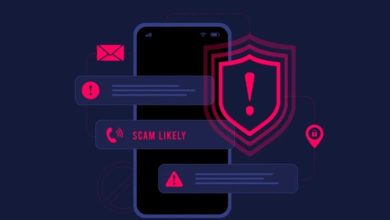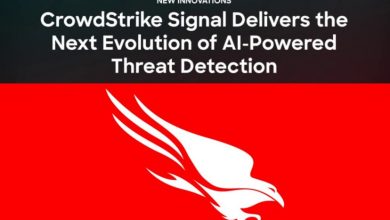The Currency of Exhaustion: Exploring the Hidden Costs of Cyber Burnout

The relentless pressure to perform plagues many workplaces, and burnout has become a familiar foe across all industries. Long hours, tight deadlines, and the constant demand for innovation chip away at employee well-being. For cybersecurity professionals though, the consequences of burnout extend far beyond personal health. In a world where threats lurk around every digital corner, these “protectors” are expected to stand guard 24/7/365, as their vigilance protects your critical data.
Unlike other sectors, a cybersecurity lapse due to burnout isn’t just missed deadlines or a drop in productivity; it can leave entire organisations vulnerable to devastating attacks. Imagine a scenario where a fatigued professional overlooks a suspicious email attachment, leading to a ransomware attack that cripples an entire organisation’s operations. The constant strain of this responsibility takes a toll, putting cybersecurity professionals at an even greater risk of burnout, creating a vicious cycle that weakens the very defences they’re tasked with maintaining.
A 2024 Sophos study revealed a startling truth—a whopping 90% of cybersecurity professionals in Malaysia are struggling with burnout and fatigue.
The Ripple Effect of Burnout in Cybersecurity
The thing about burnout is that it does not exist in a vacuum. It actually triggers a domino effect that impacts not just the individual but also the organisation. When these professionals are constantly stressed and exhausted, their ability to focus and make critical decisions suffer. This can lead to missed threats, delayed responses to security incidents, and ultimately, breaches. “The Future of Cybersecurity in Asia Pacific and Japan” study from Sophos underscores this danger as a staggering 21% of respondents in Malaysia linked cybersecurity burnout directly to security breaches.
The study also shed light on the extensive impact of burnout on business operations. In addition to its immediate effect on individual performance, burnout also leads to a decrease in overall team effectiveness. With 22% of companies reporting slower response times to cyber attacks, the potential for incidents to escalate and cause more significant damage is real. This inefficiency, coupled with an average of 4.1 hours lost productivity per cybersecurity professional each week, paints a concerning picture.
The domino effect doesn’t stop there. Burnout can lead to a mass exodus of talent, as evidenced by the Sophos study where 32% of companies reported stress as a reason for cybersecurity professionals’ resignations. This loss of skilled professionals creates a critical gap in an organisation’s security posture, leaving them vulnerable and struggling to defend against ever-evolving threats.
While recognising the importance of team well-being is important, building a larger internal IT/security team isn’t always the most feasible solution to ensuring your team is coping with the constant pressure of defending the organisation. While in-house teams offer undeniable advantages like customised support and swift response times, they can be a significant investment for many organisations. In today’s economic climate, striking a balance between effective cybersecurity and smart resource allocation is crucial.

A Well-Rested Team is a Secure Team
Faced with these challenges, many companies require a solution that addresses the burnout gap. Managed Detection and Response (MDR) services offer a compelling answer by providing organisations with the resources they need, all while remaining cost-effective. MDR empowers your existing team by providing 24/7 monitoring, expert threat detection, and swift incident response, delivering a comprehensive security solution that brings peace of mind.
With MDR, your organisation can:
- Reduce overtime: MDR eliminates the need for constant monitoring, freeing up your security team to focus on strategic initiatives and proactive threat hunting. This significantly reduces overtime costs.
- Minimise the need for additional staff: MDR can effectively augment your existing security team, eliminating the pressure to hire additional security professionals, especially during periods of heightened cyber threats. This translates to cost savings on recruitment, training, and salaries.
Nevertheless, MDR isn’t just about saving money on overtime. By taking over the never-ending task of monitoring and sifting through alerts, MDR frees up your security team. This unleashes a powerful force: A well-rested, motivated crew of security professionals. Imagine your team—energised and focused—actively hunting down threats instead of being bogged down by alerts. That’s the power of MDR.
When your security team isn’t burned out, they can focus on the bigger picture. This means diving deeper into threat intel, implementing preventive measures to stop attacks before they happen, and staying ahead of the curve. Essentially, MDR empowers your team to switch from constantly reacting to proactively hunting threats, building a stronger overall security posture.
Unlocking advanced cybersecurity capabilities with MDR
Today, many MDR providers offer a range of services, and Sophos MDR is a prime example. As a global leader in innovative security solutions that defeat cyber attacks, Sophos through its MDR offers a comprehensive approach to cybersecurity that goes beyond simply managing your existing security tools. It delivers tangible benefits that can significantly improve your organisation’s security posture. With it, you will be able to:
- Reduce risks and costs associated with security incidents and data breaches.
- Get more ROI from the security tools and technology you use today.
- Boost your cyber insurance coverage eligibility.
When dealing with cyber attacks, time is of the essence and often overlooked in assessing costs. Sophos MDR offers teams the capability to swiftly detect and remediate threats, significantly reducing the time required to neutralise them. In fact, Sophos MDR boasts an industry-leading average threat response time of 38 minutes—an impressive 96% faster than the industry benchmark—compared to the average 16 hours it takes for organisations with a dedicated security team to respond to threats.
Prioritising your cybersecurity team’s well-being from burnout by implementing an MDR solution is a strategic investment with a powerful return. MDR solutions offer a cost-effective way to mitigate these risks, not just by preventing breaches but also by fostering a more engaged, energised and effective security team. Plus, it safeguards your organisation from the financial and legal fallout of cyber attacks while empowering your security team to become a proactive force.
Don’t let burnout be your organisation’s cybersecurity Achilles’ heel. Explore Sophos MDR now.
 About Sandra Lee
About Sandra Lee
Sandra Lee is the Managing Director for Southeast Asia and Korea at Sophos. With over 25 years of leadership experience in sales and channel management across the Asia Pacific & Japan, Sandra has driven significant revenue growth and business expansion. Highlights of her career include achieving 170% of the partner revenue goal at Blue Coat Presidents Club, managing a 30% year-on-year revenue increase at Plantronics, onboarding over 1000 partners annually, and securing double-digit growth at Kaspersky.




